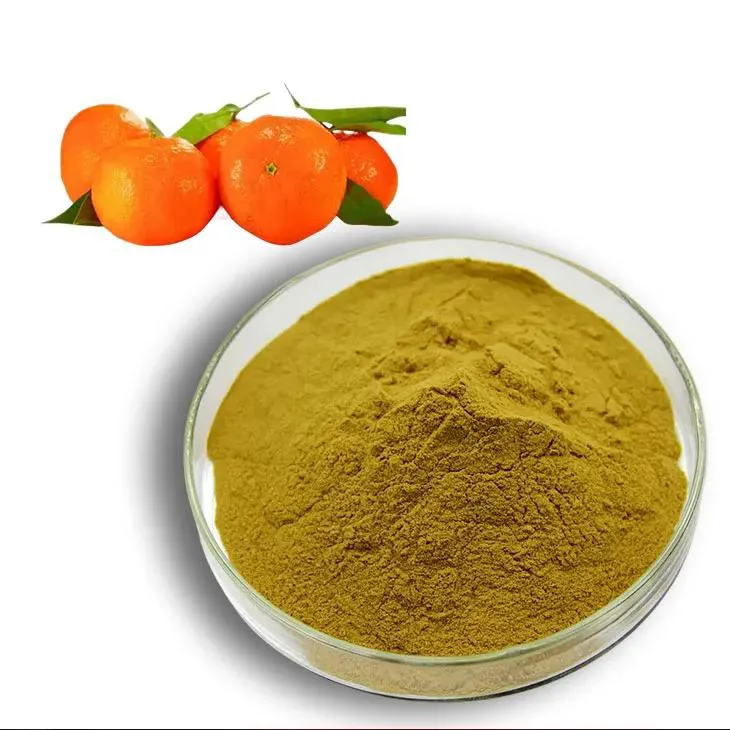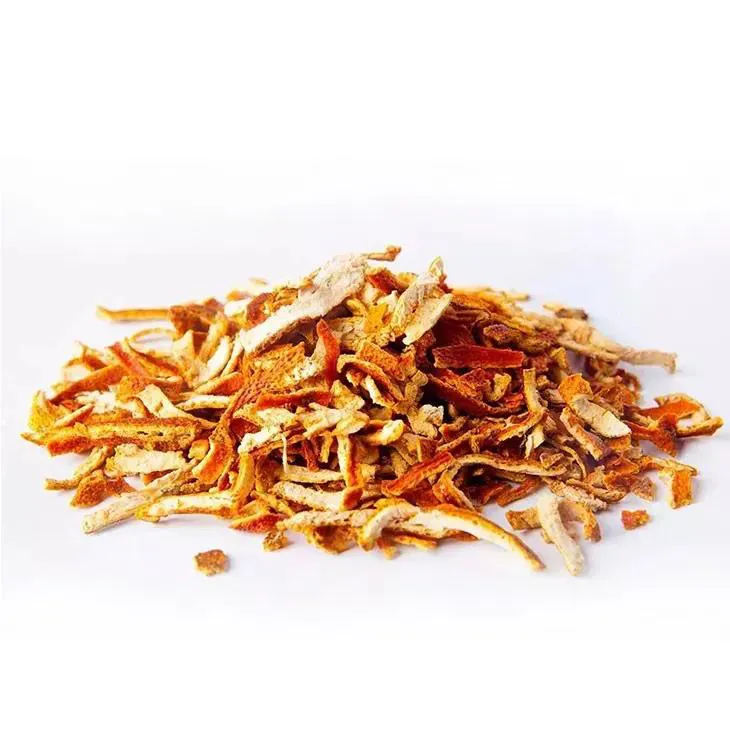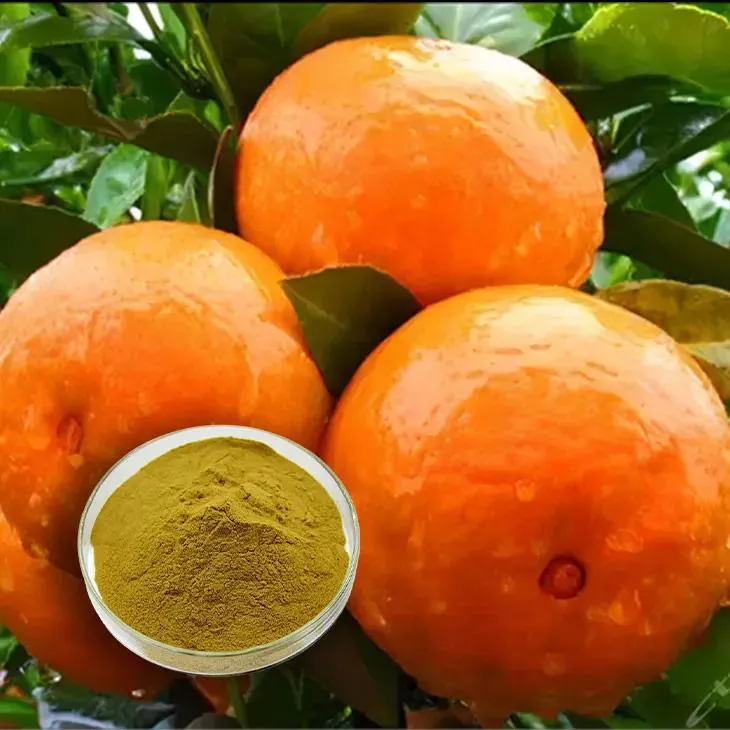- 0086-571-85302990
- sales@greenskybio.com
Lvtian offers 5 best citrus bioflavonoids.
2024-12-10

Introduction
Citrus fruits are not only delicious but also a rich source of various beneficial compounds. Among these, citrus bioflavonoids are of particular interest. They play a significant role in maintaining our health and have the potential to prevent certain chronic diseases. In this article, we will explore five of the best citrus bioflavonoids presented by Green Sky.

1. Hesperidin
Hesperidin is one of the most abundant bioflavonoids in citrus fruits.
- It is mainly found in the peel and white pulp of oranges, lemons, and other citrus fruits.
- One of its key benefits is its role in improving blood circulation. By strengthening the walls of blood vessels, it helps in the proper flow of blood throughout the body. This is crucial for the normal functioning of all organs as they rely on a steady supply of oxygen and nutrients carried by the blood.
- Hesperidin also has anti - inflammatory properties. Inflammation is at the root of many chronic diseases, and by reducing it, hesperidin can contribute to overall health improvement.
- Studies have shown that hesperidin may have a positive impact on cholesterol levels. It can help in reducing bad cholesterol (LDL) and increasing good cholesterol (HDL), which is beneficial for heart health.

2. Naringin
Naringin is another important citrus bioflavonoid.
- It is predominantly present in grapefruits. The bitter taste of grapefruit is partly due to naringin.
- Like hesperidin, naringin also has a positive effect on blood circulation. It helps in relaxing the blood vessels, which in turn reduces blood pressure. High blood pressure is a major risk factor for cardiovascular diseases, so naringin's ability to regulate blood pressure is highly valuable.
- Naringin has antioxidant properties. Antioxidants are essential for protecting the body from free radical damage. Free radicals are unstable molecules that can cause damage to cells, DNA, and proteins. By neutralizing these free radicals, naringin can slow down the aging process and reduce the risk of developing various diseases such as cancer and neurodegenerative diseases.
- Research has also suggested that naringin may play a role in improving insulin sensitivity. This is beneficial for people with diabetes or those at risk of developing diabetes as it helps in better regulation of blood sugar levels.

3. Diosmin
Diosmin is a bioflavonoid that has been widely studied for its health benefits.
- It can be found in citrus fruits, especially in oranges. Diosmin is often used in the treatment of venous insufficiency, a condition where the veins have difficulty returning blood to the heart. It helps in strengthening the vein walls and improving the function of the valves in the veins, thus facilitating the proper return of blood.
- Diosmin also has anti - edema properties. Edema is the swelling caused by the accumulation of fluid in the body tissues. By reducing edema, diosmin can relieve symptoms such as swelling in the legs, which is often associated with venous insufficiency.
- Another advantage of diosmin is its role in reducing inflammation in the blood vessels. This can help in preventing the development of varicose veins and other vascular problems.
- It has been shown to have a positive impact on microcirculation. Microcirculation refers to the blood flow in the smallest blood vessels, such as capillaries. Good microcirculation is necessary for the proper functioning of tissues and organs at the cellular level.
4. Eriocitrin
Eriocitrin is a bioflavonoid that is less well - known but still has significant health benefits.
- It is found in lemons and other citrus fruits. Eriocitrin has antioxidant and anti - inflammatory properties. The antioxidant activity helps in protecting the body from oxidative stress, which is caused by an imbalance between free radicals and antioxidants in the body.
- Studies have indicated that eriocitrin may have a role in protecting the liver. The liver is a vital organ responsible for many metabolic functions, and protecting it from damage is crucial for overall health. Eriocitrin may help in reducing liver inflammation and preventing liver diseases.
- It also has potential in improving the immune system. A strong immune system is necessary to fight off infections and diseases. Eriocitrin may enhance the function of immune cells, making the body more resistant to pathogens.
- Eriocitrin may contribute to better digestion. It can help in the secretion of digestive enzymes and improve the absorption of nutrients in the gut, which is essential for maintaining good health.
5. Rutin
Rutin is a citrus bioflavonoid with a wide range of health - promoting effects.
- It is present in citrus fruits as well as other plants. Rutin has strong antioxidant properties. It can scavenge free radicals more effectively than some other bioflavonoids, thereby protecting cells and tissues from damage.
- One of its important functions is in strengthening the capillaries. Capillaries are the smallest blood vessels and are very fragile. Rutin helps in making the capillary walls more resilient, which can prevent bleeding and bruising easily. This is especially beneficial for people with capillary fragility problems.
- Rutin also has anti - platelet aggregation properties. Platelets are cells in the blood that play a role in blood clotting. However, excessive platelet aggregation can lead to the formation of blood clots, which can be dangerous. By inhibiting platelet aggregation, rutin can reduce the risk of thrombosis and related cardiovascular problems.
Conclusion
The five citrus bioflavonoids - hesperidin, naringin, diosmin, eriocitrin, and rutin - are all valuable compounds that offer numerous health benefits. They can improve blood circulation, have antioxidant and anti - inflammatory properties, and may play a role in preventing chronic diseases such as cardiovascular diseases, diabetes, and cancer. Incorporating citrus fruits, which are rich in these bioflavonoids, into a balanced diet is an easy and natural way to promote good health. However, it is also important to note that while these bioflavonoids show great potential, more research is still needed to fully understand their mechanisms of action and to develop more effective ways of using them for therapeutic purposes.
FAQ:
What are citrus bioflavonoids?
Citrus bioflavonoids are natural compounds found in citrus fruits. They have various health - promoting properties and can play important roles in the body such as antioxidant, anti - inflammatory and blood - circulation - improving functions.
How do citrus bioflavonoids improve blood circulation?
Citrus bioflavonoids can help relax blood vessels, reduce platelet aggregation and enhance the flexibility of blood vessels. These effects contribute to improved blood circulation which is crucial for the normal function of organs.
What are the five best citrus bioflavonoids presented by Green Sky?
The article doesn't mention specifically which five citrus bioflavonoids are the best. But generally, common citrus bioflavonoids include hesperidin, naringin, rutin, Quercetin and diosmin which are likely candidates.
Can citrus bioflavonoids prevent chronic diseases?
Yes, they have the potential to prevent certain chronic diseases. Their antioxidant and anti - inflammatory properties can help combat oxidative stress and inflammation in the body, which are often associated with chronic diseases such as heart disease, diabetes and some cancers.
How can we incorporate citrus bioflavonoids into a balanced diet?
We can incorporate citrus bioflavonoids into a balanced diet by consuming citrus fruits like oranges, lemons, grapefruits directly. Also, citrus juices, marmalades and supplements are other options, but when choosing supplements, it's important to consult a doctor or a nutritionist.
Related literature
- Title: The Health Benefits of Citrus Bioflavonoids: A Review"
- Title: "Citrus Bioflavonoids and Their Role in Cardiovascular Health"
- Title: "Bioflavonoids in Citrus Fruits: Chemical Structures and Potential Therapeutic Applications"
- ▶ Hesperidin
- ▶ citrus bioflavonoids
- ▶ plant extract
- ▶ lycopene
- ▶ Diosmin
- ▶ Grape seed extract
- ▶ Sea buckthorn Juice Powder
- ▶ Beetroot powder
- ▶ Hops Extract
- ▶ Artichoke Extract
- ▶ Reishi mushroom extract
- ▶ Astaxanthin
- ▶ Green Tea Extract
- ▶ Curcumin Extract
- ▶ Horse Chestnut Extract
- ▶ Other Problems
- ▶ Boswellia Serrata Extract
- ▶ Resveratrol Extract
- ▶ Marigold Extract
- ▶ Grape Leaf Extract
- ▶ blog3
- ▶ blog4
- ▶ blog5
-
Nutmeg Extract
2024-12-10
-
Chasteberry Extract
2024-12-10
-
Dan Shen Root Extract/Salvia Root Extract
2024-12-10
-
Nettle leaf extract
2024-12-10
-
Grapefruit Seed Extract Powder
2024-12-10
-
Yam Extract
2024-12-10
-
Curcuma Longa Extract
2024-12-10
-
Giant Knotweed Extract
2024-12-10
-
Nettle Root Extract
2024-12-10
-
Panax Ginseng Leaf Extract
2024-12-10





















